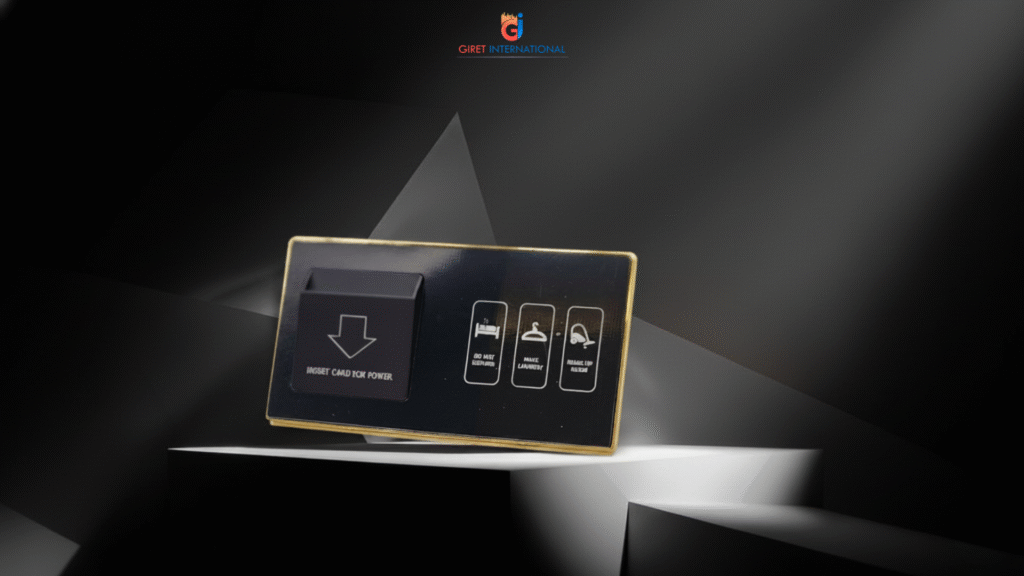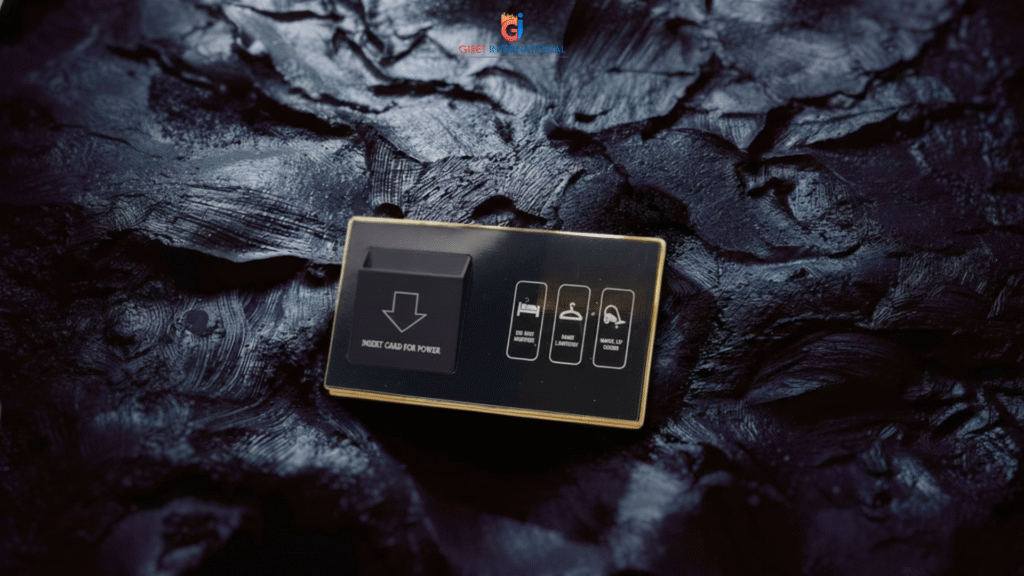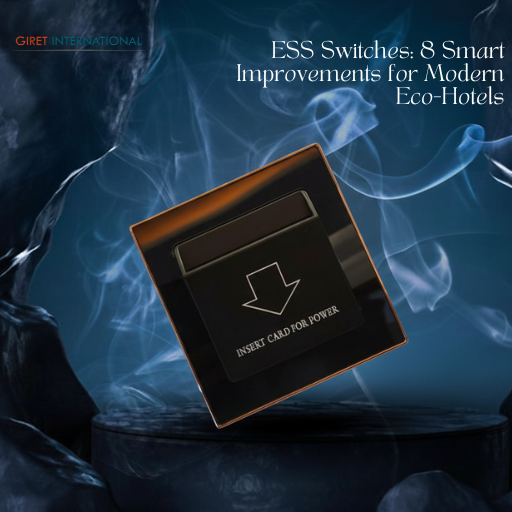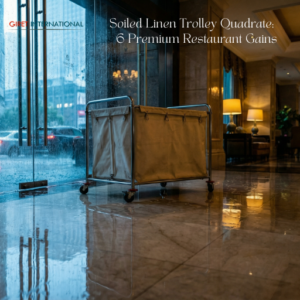Eco-hotels are rewriting the standards of modern hospitality by embracing intelligent, energy-efficient solutions. Among these solutions, ESS switches stand out as one of the simplest yet most impactful upgrades a hotel can integrate. As guest expectations evolve toward sustainability, hotels must adopt systems that reduce waste without compromising comfort. ESS-based automation achieves this by making room-level electricity consumption intentional, controlled, and occupancy-driven.
Modern guests often leave lights on, forget to turn off heating or cooling systems, and keep appliances plugged in for long periods. Without automation, these behaviours are difficult to manage and lead to major energy loss. ESS-driven rooms eliminate that challenge by responding instantly to occupancy, helping eco-hotels stay aligned with global sustainability commitments.

To explore more eco-hotel improvements, read:
➡ ESS Switches: 10 Proven Tactics for Greener Hotels
1. ESS switches and the Rise of Sustainable Hospitality
Sustainability is no longer an optional feature in hospitality it is a core operational requirement. Eco-conscious guests actively look for hotels that reduce waste, conserve energy, and operate responsibly. As a result, eco-hotels have become a leading trend globally.
One of the biggest challenges hotels face is regulating energy use inside guest rooms. Guests often leave the room with appliances running, lights switched on, and AC units operating at full power. ESS switches solve this effortlessly by automating room electricity based on occupancy. When a guest removes their card and leaves, the room powers down after a short delay.
This ensures energy is consumed intentionally, not accidentally, which is a critical foundation of sustainable hotel design.
To understand how hotels cut waste effectively, read:
➡ ESS Switches: 7 Smart Ways to Reduce Hotel Power Waste
2. ESS switches for Controlled Energy Behaviour
Unpredictable energy usage is one of the largest sources of waste in hotels. Without automation, room consumption varies wildly depending on guest habits. Some guests conserve electricity, while others unknowingly waste it.
By integrating ESS switches hotels create a predictable and controlled energy pattern. The system activates power only when a guest inserts the RFID or key card and shuts it off when they depart. This ensures:
- Zero idle consumption
- Safer electrical conditions
- Accurate load planning
- Consistent room behaviour
- Streamlined engineering operations

Predictability is key in sustainability planning, especially for eco-hotels that aim to meet strict environmental standards.
For deeper efficiency upgrades, refer to:
➡ ESS Switches: 9 Critical Upgrades for Hotel Efficiency
3. ESS switches in Smart HVAC Optimization
Air-conditioning systems account for nearly half of a hotel’s room-level electricity usage. When guests leave AC units running, the system consumes unnecessary energy and puts strain on compressors.
With ESS switches controlling the HVAC circuit, cooling is strictly regulated based on room occupancy. When the guest leaves, the AC shuts down automatically, reducing:
- Power waste
- Excessive compressor cycles
- Room overcooling
- Maintenance frequency
- Risk of overheating
Hotels integrating HVAC automation report cost savings of up to 40% because cooling systems run only when necessary.
For structured sustainability planning:
➡ ESS Switches: 10 Essential Steps to Build Greener Hotels
4. ESS switches Lowering Lighting & Appliance Waste

Lighting systems especially in bathrooms, corridors inside rooms, and dressing areas are often left running unnecessarily. Similarly, devices like kettles, chargers, hairdryers, irons, and minibars create phantom load even when unused.
With ESS switches, hotels eliminate such wastage entirely. When the guest exits, the system powers off:
- Lights
- Plug sockets
- High-heat appliances
- Mini-fridge supply (in certain configurations)
This prevents accidental overuse and reduces fire risk from overheated appliances.
To address costly power losses, check:
➡ ESS Switches: 6 Smart Fixes for Costly Hotel Power Losses
5. ESS switches Boosting Operational Performance
Beyond energy savings, operational efficiency receives a major boost through automation. Hoteliers often deal with electrical complaints, overheated wiring, and unexpected technical issues caused by unattended appliances.
By using ESS switches, hotels reduce:
- Engineering workload
- Emergency call-outs
- Appliance burnout
- Circuit overload
- Housekeeping delays

Rooms automatically reset to a stable electrical state after guests leave, ensuring uniformity across floors and improving staff productivity.
6. ESS switches Enhancing Guest Comfort & Safety
Guest comfort is a priority, even in eco-hotels. Automated rooms powered through ESS switches ensure guests experience stable lighting, predictable temperature control, and safer appliance conditions.
Guests benefit from:
- Consistent AC performance
- Safe, regulated electrical load
- Reduced heat buildup
- Fewer electrical faults
- A more comfortable stay
Eco-conscious travelers especially appreciate knowing the hotel is saving energy without compromising their comfort.
For safety-focused insights:
➡ ESS Switches: 11 Powerful Ways to Upgrade Hotel Safety
7. ESS switches Supporting Environmental Certifications
International green certifications LEED, IGBC, GRIHA, and EarthCheck evaluate the quality of a hotel’s energy management systems. Automated, occupancy-based controls are essential for achieving high scores.

ESS switches help hotels meet these requirements by providing:
- Lower kilowatt-hour consumption
- Reduced carbon emissions
- Automated waste elimination
- Reliable performance metrics
Audit teams often look for traceable, automated, and documented sustainability actions and ESS-based automation meets these expectations effortlessly.
8. ESS switches Strengthening Infrastructure Sustainability
Long-term electrical sustainability often goes unnoticed in discussions about eco-hotels. Wiring overload, overheating, and appliance failure all contribute to environmental strain and financial loss.
ESS automation helps minimise these issues by maintaining stable load distribution. When rooms deactivate automatically, circuits cool down, wiring remains safe, and appliances last longer. These improvements reduce:
- Electrical repair frequency
- Replacement costs
- Unsafe wiring conditions
- Circuit stress
This creates long-term reliability that every eco-hotel requires.

9. Additional Eco-Friendly Features Enabled by Automation
Once energy usage becomes automated, hotels can confidently integrate advanced sustainability features such as:
- Smart corridor lighting
- Automated generator scheduling
- Solar-assisted energy grids
- AI-based energy monitoring
- Load-balancing systems
Reliability from ESS switches forms the backbone of such enhancements, enabling deeper environmental transformation.
10. Choosing the Right ESS Technologies
Hotels should select ESS systems based on:
- Panel durability
- Material quality (glass/PC)
- Heat resistance
- RFID compatibility
- Intelligent delay timers
- Wiring requirements
Choosing premium-grade systems ensures consistent long-term results, safer operations, and peak sustainability performance.

11. Installation Practices that Maximize Efficiency
Correct installation determines how effectively automation works. Hotels must ensure:
- Proper phase-neutral alignment
- Fire-safe electrical boxes
- Strong flush mounting
- Accurate calibration
- RFID-card responsiveness
- Delay verification
Hotels that invest in proper installation achieve stronger energy savings over time.
12. Real-Life Eco-Hotel Transformations
Case Study 1 : Coastal Eco-Resort
The resort reported a 32% reduction in room-level energy waste within just two months.
Case Study 2 : Business Hotel Chain
Automation brought consistency across properties and reduced HVAC misuse significantly.
Case Study 3 : Heritage Boutique Hotel
Older wiring became more stable because automated shutdowns prevented overheating cycles.
Case Study 4 : Luxury Urban Hotel
Guest satisfaction increased due to stable lighting and predictable room cooling.
13. Conclusion

Modern eco-hotels require intelligent systems that save energy effortlessly, operate consistently, and enhance guest experience. ESS-based automation is the foundation of this evolution. By aligning power usage with occupancy, ESS switches help hotels eliminate waste, optimize HVAC, protect wiring, and deliver sustainability without compromising comfort.
Eco-hotels that embrace these systems are better positioned to meet global green standards, reduce operational costs, and create responsible environments for future generations.
➡ About Giret International
➡ Contact Us
➡ Hospitality Products
Instagram | Facebook | Pinterest | YouTube | X (Twitter)





